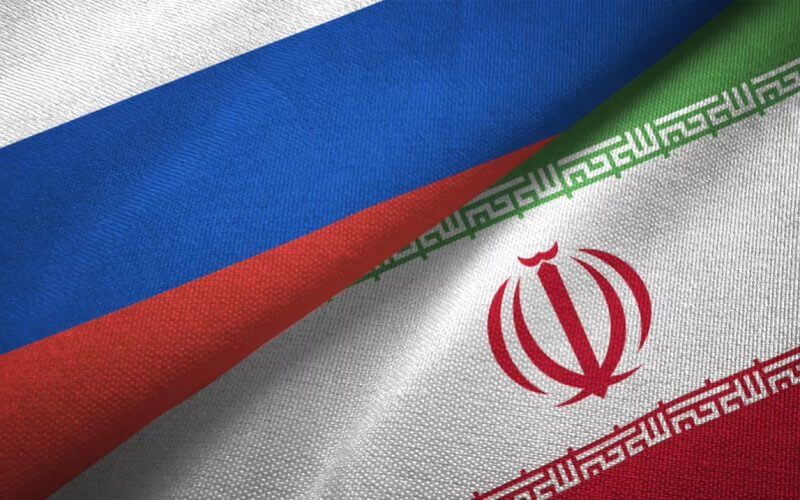As Iranian officials were meeting with the International Atomic Energy Agency (IAEA) last week, simultaneously, Iran’s regime was working out deals with Russia’s government to guarantee uranium deliveries as part of its ongoing weapon’s development program, according to foreign intelligence sources speaking to Fox New Digital.
According to sources, the latest development is a significant setback to the ongoing negotiations to revive the 2015 Iran nuclear agreement, given that Russian President Vladimir Putin agreed to return enriched uranium it received from Tehran if an atomic deal does not fall through.
The United States State Department neither confirmed nor denied the reports when asked.
"We will not comment on purported secret intelligence reports, but in any event, the JCPOA has not been on the agenda for months," said a State Department spokesperson to Fox News.
According to experts familiar with the negotiations over the 2015 Iran nuclear program, one of the terms in the agreement included Russia storing Tehran's enriched uranium to prevent the regime from constructing a nuclear warhead.
Foreign intelligence sources told Fox News that as part of the deal between the two governments, "Russia has undertaken to return all the enriched uranium to Iran as quickly as possible if, for any reason, the U.S. withdraws from the agreement."
According to experts familiar with Russia and its role in Iran's nuclear program, Moscow benefits as a participant in the Joint Comprehensive Plan of Action (JCPOA) and is trying to stall things and make other signatories reliant on it for a deal to go through.
“I do not think Russia's provision of drones to Iran automatically means it is comfortable with Tehran acquiring a nuclear weapon. What it likely means is more Russian permissiveness in the Islamic Republic's nuclear advances without meaningful pushback. The geopolitical landscape has shifted today--in 2015 Russia had more leverage over Iran than it does today and in an era of great power conflict, the P5+1's cohesion has been thrown into doubt,” Jason Brodsky, policy director at United Against Nuclear Iran (UANI) told The Foreign Desk.
Asked by Fox News about the secret deals between Tehran and Moscow over the reports of shipments of enriched uranium, Mojtaba Babaei, a spokesperson for the Islamic Republic mission at the United Nations, said that "there's no information about the claim."
"Massimo Aparo, deputy director general and head of the Department of Safeguards visited Iran last week and checked the alleged enrichment rate. Based on Iran's assessment, the alleged enrichment percentage between Iran and the IAEA is resolved. Due to the IAEA report being prepared before his trip, his trip's results are not in it, and hopefully, the IAEA director general will mention it in his oral report to the board of governors," said Babaei.
The Islamic Republic official also noted that Iran "has no plans to make nuclear weapons because its military doctrine prohibits the use of weapons of mass destruction in any form."
Brodsky said that the reported side deals between Tehran and Moscow over its nuclear program "demonstrate the risks of depending on Moscow as a participant or guarantor in a JCPOA-like arrangement. The geopolitical context has fundamentally shifted with its invasion of Ukraine."
"P5+1 [China, France, Russia, Britain, U.S., and Germany] under these conditions of great power conflict is not a viable diplomatic platform. Iran has leverage over Russia in 2023 that it did not have in 2015 with its supply of arms. It's in this dynamic that the Kremlin cannot be trusted. The JCPOA of 2015 has no future. It is time to declare it dead, invoke the snapback sanctions mechanism, and pivot to a deterrence strategy as the diplomatic track has run aground," Brodsky said.
Intelligence officials further explained to Fox News, "President Putin, who made a special trip to Iran to pursue weapons deals between the two countries, agreed to approve the request, apparently due to his interest in compensating the Iranians for their assistance."
The actions to go around America and other Western powers would get rid of the entire reason for the Iran nuclear deal, said intelligence officials, as it would "undermine U.S. interests and would give Russia de facto control over the nuclear agreement in the present and future."
“I think the U.S. and its allies should snapback sanctions to restore the UN conventional arms embargo on Iran and make permanent missile restrictions on Iran that are scheduled to lapse this year. That would eliminate the legal cover both are using to engage in this transfer of arms. The U.S. and its allies might also consider striking drone production facilities on Iranian soil to force the system to calculate the costs of arming Russia outweigh the benefits,” Brodsky said.
Following the end of the Cold War, Russian scientists were hired by the Islamic Republic to aid in its nuclear program development, prompting concern for American and Western officials. With the Ukraine war ongoing, Moscow has been more open to providing nuclear material and know-it-all to advance its program to a weapons-grade level.
Last week, reports from media outlets found that the Biden administration was following a softer approach than its Western European allies, who want Iran to be censured at the upcoming IAEA meeting for enriching uranium to nuclear weapon grade.
Following the news that the Islamic Republic has produced weapon-grade nuclear material of 60 percent in the past few years with 84 percent purity, Israeli and American officials have called on the international community to take a tougher approach towards the mullahs and prepare for military measures in the near future.
Related Story: Biden Admin Wants Allies to Keep Quiet as Iran Comes Closer Than Ever to Nuclear Capability










